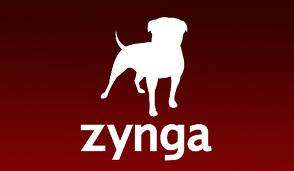Facebook Games Temporarily Blocked in South Korea
Right now, my wife is overjoyed that we do not live in South Korea. That is not an indictment of the nation or its people, it is just that last week every Facebook game stopped working in the country. My wife without “Words with Friends,” oh dear, it makes me shiver just imagining it.
And *gasp* it was the government that did it. Fortunately, it was not some internet censorship carpetbombing or overreaching game restriction, but rather a sort of reset period before a legislative policy kicks in. Not that it will make Facebook gamers feel any better. The legislation is the Game Industry Promotion Act (GIPA), which went into effect in March 2013. The Act’s goal is “…to contribute to the development of the national economy and the improvement of the quality of the cultural life of the people through the promotion of the game industry and the establishment of a healthy game culture of the people by creating a foundation for the game industry and providing for matters concerning the use of game products.”
Article 16 of GIPA establishes the Gaming Rating Board, which is made up of nine members, including a chairperson. The Board, as should be obvious, is responsible for establishing age ratings for games, essentially for the purpose of protecting children from games with content that is in appropriate for juveniles. There are four ratings classifications: permitted for use by all, permitted for use by those 12-years old and up, permitted for use by those 15-years old and up, and not permitted for use by juveniles, meaning anyone under 18-years of age.
Before a game can be distributed in South Korea, the production company must apply for and receive a rating. This is where the blackout of Facebook games comes in. None of them have a rating right now. For a fee, the game developers and publishers can submit their games to the Gaming Rating Board and after 15 days, they will (likely) receive a rating. It is not until after that point that the games can be activated on Facebook.
This affects such popular games as Candy Crush Saga, Farmville, and Zynga Poker, each of which, while free, rakes in piles of money from micro-transactions. Micro-transactions, as the sound, are low dollar-value in-game purchases that are used to by a variety of things such as more playing time, power-ups, in-game currency, items that confer benefits to the player, and even silly vanity items. By themselves, each transaction is fairly insignificant, maybe a dollar or two (or even just pennies if purchased using in-game currency), but when hundreds of thousands or even millions of players make this tiny purchases every day, the bucks add up quickly for the game makers.
VentureBeat, which initially wrote about this story, opines that the sudden crackdown on Facebook games more than a year after GIPA took effect does not have as much to do with South Korea’s concern with kids seeing violence or other inappropriate content, but more with the country’s attitude towards gambling. Writes VentureBeat:
Casino gambling is highly controlled in South Korea, and the age-rating system, overseen by the Game Rating and Administrative Committee, gives the country’s officials a way to look at and approve certain casino games for specific age ranges before they even hit the market. Social-casino experiences on Facebook and mobile emulate real casinos where players can pay to buy more chips or other kinds of virtual currencies, but the games don’t provide a way for players to win actual money.
This makes perfect sense. In Zynga Poker, for example, players are given $1,000 in play chips to start and if they go busto, they can come back the next day for a free reload. But at any time, players can simply buy chips to boost their fake bankrolls quickly. For $1 in real money, $855,000 Zynga Poker chips can be purchased. Of course, Zynga doesn’t want people to spend just a dollar, so they advertise the $25 for $72,000,000 in chips as the “Most Popular” option. $125 for $685,000,000 in fake chips is the priciest option. Not only can these chips be used to play poker, but they can also be used to purchase items in the game’s gift shop. The items don’t do anything, they are just decoration. Players can even buy “Casino Gold,” which is used for buying “premium” items in the gift shop. 
The problem that can result from all this is that though games like Zynga Poker are free to play, some people end up getting so into it that they feel compelled to buy more chips either when they run out or simply to compete at higher stakes tables. What they do not get, though, is any real money when they win. Now, this is not necessarily a problem, as just like people will gladly pay $40 or $50 to buy an Xbox game, many people will gladly pay a few bucks here and there for a game they enjoy. Unfortunately, there are people for which these micro-transactions add up; it is easy to justify spending “just one more dollar,” but it is not always easy to keep track of how many times this was done.
So South Korea seems to want to take a step towards making sure children are shielded from the potential problems that could result from gambling. Social gambling, at times, can be even more problematic for kids, as they often do not have the ability to turn off the “I want it now” switch and often do not understand that the things they are buying in the store actually cost real money. It is not a bad move by the government. Unfortunately for the gaming companies, they are losing big bucks while they wait for rating approval.



















COMMENTS